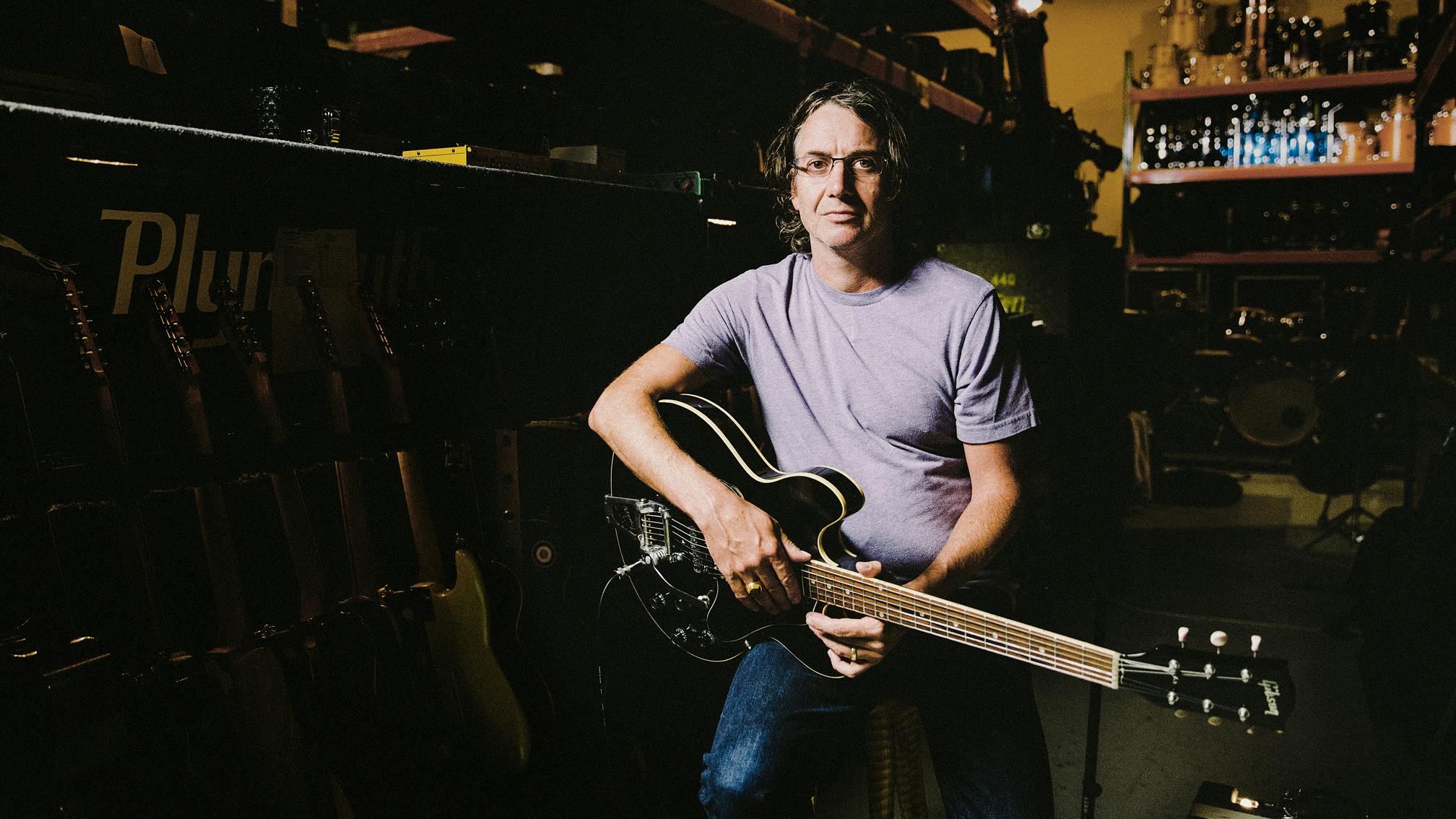There’s the long version and the short version of how it came about. The long is to see it as a grand reunion between Stone and Matt Chamberlain. The wonder-drummer was a member of Pearl Jam for a few weeks in 1991 – helping them out on the Ten tour after original sticksman Dave Krusen checked himself into rehab. Van rides through the desert were endured together… without functioning air conditioning.
“We were trying to convince him all the time that he needed to be in the band, but he had a lot of other territory to cover,” smiles Stone, recalling their failed powers of persuasion at the time. That other territory has included working with the venerated likes of Bruce Springsteen, Soundgarden, A Perfect Circle, Kanye West, David Bowie, Fiona Apple, Tori Amos and, most recently, Bob Dylan. “He can do it all,” praises Stone.
The real catalyst, though, was when Stone met Painted Shield’s singer. From Mark Arm in Green River, to Mother Love Bone’s Andrew Wood, Chris Cornell in Temple Of The Dog, Eddie Vedder in Pearl Jam, Shawn Smith in Brad and even Neil Young, throughout his career Stone Gossard has been a lightning rod for incredible vocalists. And now, with Painted Shield, he says he gets to work with another. Enter: American singer-songwriter Mason Jennings.
“I think there’s something in his approach that has elements of Iggy Pop, Bob Dylan and all these singers that I love,” salutes Stone of the man he was introduced to by a mutual friend. “He’s totally different than Shawn Smith or Eddie in terms of his approach. Mason’s subtle. His voice has a narrower range, but his storytelling, his phrasing and his accents hit me in the right spot.”
And Stone hit Mason, too. One of Painted Shield’s best tracks, Ten Years From Now, was forged during the singer’s divorce. The first incarnation was “super-aggressive” until the guitarist imparted some wisdom.
“It just didn’t strike me as a slam dunk,” says Stone. “I knew he was working through this stuff about his relationship with his ex-wife. He was right in it. I was just like, ‘Maybe you can give yourself some perspective – think about how would you feel 10 years from now? Where would you like to be in 10 years? How could you imagine it improving?’”
The recalibrated song is a beautiful meditation on hope and possible reconciliation, switching from dazed-sounding passages into a fuzzy blast of a chorus. It’s indicative of the album as a whole, Painted Shield a reminder that Stone Gossard is seemingly outright allergic to repeating himself musically. Knife Fight and On The Level summon Beck in his Odelay-era, and Time Machine has hints of Queens Of The Stone Age. At the other end of the spectrum, meanwhile, is I Am Your Country, which starts with an ominous, slow-motion industrial throb that shares DNA with Nine Inch Nails.
